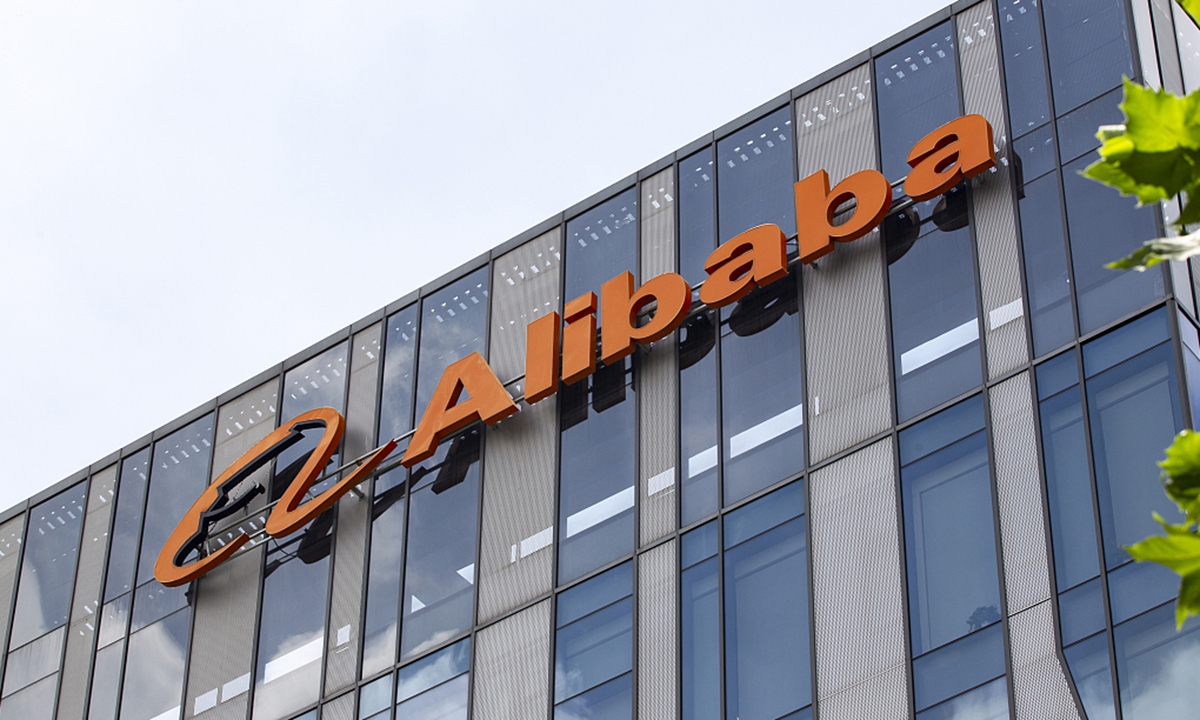Alibaba announces break-up into six units in its historic organizational change since establishment

Photo:VCG
China's e-commerce giant Alibaba Group announced on Tuesday evening its decision to break up major business sectors into six units, marking its most significant organizational change in the 24 years since the company was established.
According to the company, the six units include Cloud Intelligence Group, Taobao Tmall Commerce Group, Local Services Group, Cainiao Smart Logistics Group, and Global Digital Commerce Group and Digital Media and Entertainment Group.
The move was well-received by the market, with Alibaba's US stock rallying more than 10 percent before the market opened.
Expert said the business restructure will make the entire business system more agile to actively capture new possibilities amid the recovery of the capital market. At the same time, the move also comes with the fact that each divided units of the group will need to deal with the market opportunities and risks independently in the future.
In a letter to all staff members of the company, Alibaba's CEO Daniel Zhang Yong, who initiated this reform, stated the change as the "1+6+N" organizational transformation.
The market is the best touchstone, Zhang said, noting that in the future, qualified business groups and companies will have the possibility of independent financing and listing.
This restructure has been unanimously approved by the group partners and the board of directors, according to media reports. Starting from the top level of the group, it will redefine and reconstruct the governance relationship between Alibaba Group and various businesses.
According to the letter from all employees released on Tuesday, the middle and back offices of Alibaba Group will be light and thin in an all-round way, which means that the company will serve more diversified development needs in a more agile manner.
Liu Dingding, a Beijing-based tech industry observer, told the Global Times on Tuesday that the core spirit of this self-restructure is to make it possible for more units to operate independently, including independent financing, independent listing, and independent response to market opportunities and risks.
"This move will make the Alibaba Group much agile when it comes to dealing with the new opportunities and risks in the market," Liu said, noting that more people in the group can also be able to rise up and play an important part in their corresponding business sectors.
Alibaba's restructure is also seen as an effort to gain more market value, the Global Times learned from an industry insider.
Maggie Wu, Chief Financial Officer of Alibaba Group, said publicly at the 2020 Investor Day that the market does not give due value to many business segments in the group's overall business, whether it is new business in core business or cloud computing.
For example, after years of construction, Alibaba Cloud has become the third largest cloud computing service provider in the world and the largest in Asia Pacific.
In anticipation of the listing of Alibaba's business, Cainiao is also widely expected by the market for its fast expansion.
While the capital market is taking on the recovery trend, the independent units can be listed in the Chinese stock market in the future and thrive on their own capabilities, experts said.
Liu said that this way of transformation from heavy to light will be the trend of all major domestic internet companies, such as Tencent and Baidu.
As companies grow larger, they often become too heavy to be agile and market-responsive, and more business sectors need to be split for better survival, Liu said.
Global Times

